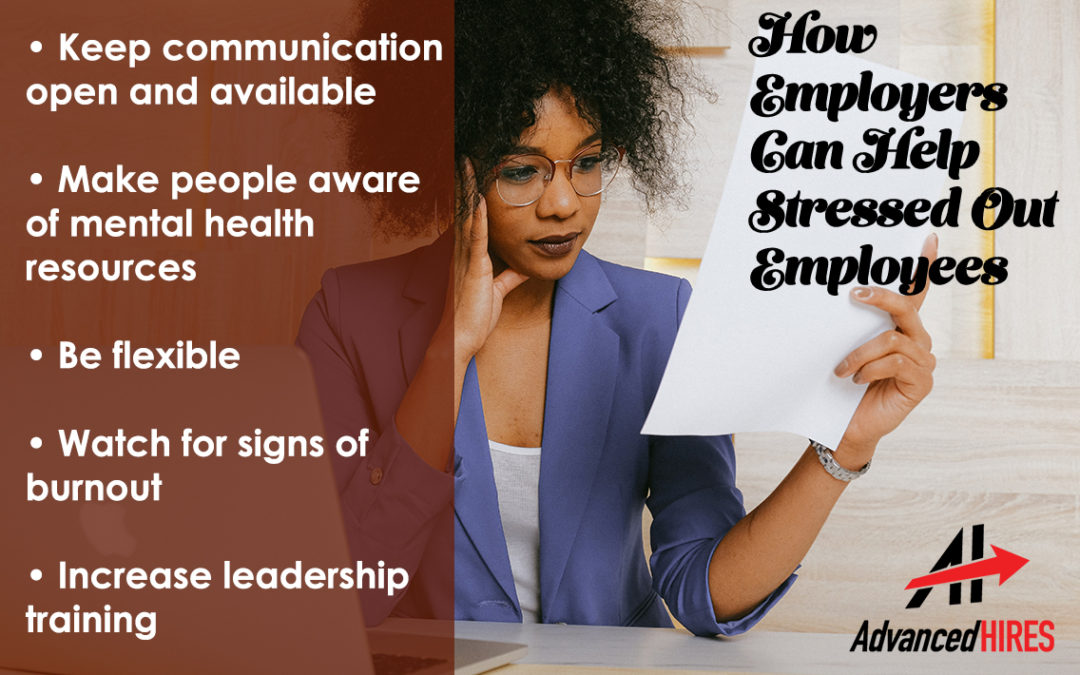Last week, we discussed how to deal with stress during the quarantine if you were an employee. But what about if you are a boss, manager, or employer? How can you help your team or reports if they are struggling with productivity or mental health during quarantine?
According to a Paycor report, most employees are struggling with things like burnout and anxiety. Many employers and employees have admitted that their mental health is not at its best right now. Here’s what people are reporting:
• 75% are more socially isolated
• 67% report higher stress
• 57% are feeling greater anxiety
• 53% are more emotionally exhausted
• 70% feel more stressed than at any other point in their professional career
• 62% reported losing at least one hour a day in productivity due to COVID
• Working from home: 91% of employees have experienced moderate to extreme stress
So, as an employer, how can you offer assistance to your people so that they feel heard, helped, and safe? Being flexible, caring, and communicative are key in creating a healthy workspace and having your employees’ backs. Here’s some ways you can do that:
- Keep the lines of communication open and available. Let your team know that you are there for them and then follow that up by actually being available when the contact you needing assistance. Make sure that if you’re changing workplace hours, or have other company updates, organizational changes, or new office policies about COVID-19 precautions, you keep ALL employees up to date on that.
- Make people aware of mental health resources. Whether that is a list of in-network therapists, or specific policies the company has access to, make sure your team knows what is available to them. Don’t dig into their mental health, but gently letting them know they have options can be very helpful.
- Have 1:1 meetings with your direct reports. This way you can figure out what is working and what is not, and ask them for tips or suggestions. This is a great way to develop trust and authentic leadership.
- Model a strong work-life balance. Practice what you preach by leading by example. Let your employees know that when they are off of work, they do not need to be stressing about it. Show them what a good work-life balance looks like and lead with kindness, prioritizing a balanced lifestyle. This will also benefit you personally, so it’s a win-win for both sides.
- Be flexible with sick leave and schedules. During this time many people are taking care of sick relatives, or living with difficult family members, or dealing with full-time childcare because schools are closed. You should be sensitive to these needs and understand that each employee will have a unique situation to handle, and their needs will change based on what is going on that particular week. The more understanding and accommodating you are (within reason), the better your team’s morale will be.
- Watch for signs of burnout. Employees during this time might be struggling and not even know it. If you know the signs, you can help them. People who are close to or already burning out can be irritable, unreliable, lack productivity, missing deadlines, or sad.
- Increase your training. This can include mental health training for teammates and leaders, or using HR initiatives to prepare leadership for new changes, tough conversations, how to use resources, and increase awareness and reduce the stigma of mental health issues. There are plenty of webinars, virtual meetings, and online toolkits that can help you with any transitions in training.





